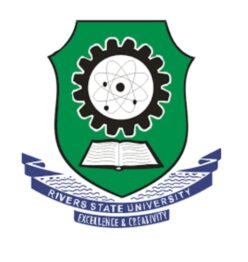EKABO Vincent
Department of Marketing, Faculty of administration and Management
Rivers State University, Port Harcourt
NWULU Chinyere Stella
Department of Marketing, Faculty of administration and Management
Rivers State University Port Harcourt.
Abstract
This study investigated the relationship between artificial intelligence (AI) robots and supply chain effectiveness of food and beverages manufacturing firms in Nigeria. AI robots is the predictor variable, and supply chain effectiveness (measured as delivery performance, logistics cost, and asset management) is the criterion variable. The study aligned with the positivist philosophy, hence, favoured a quantitative methodology and a survey research design. The population of the study comprised 17 quoted food and beverages manufacturing firms in Nigeria; and all were surveyed. A total of 77 respondents from the food and beverages manufacturing firms provided valid data for the study through a 16 item questionnaire. Pearson Product Moment Correlation (PPMC) was used to test three null hypotheses with the aid of Statistical Package for Social Sciences (SPSS) version 22.0. The study found that AI robots have positive significant relationship with delivery performance, logistics cost and asset management of food and beverages manufacturing firms in Nigeria. Thus, the study concluded that AI robots have positive and significant relationship with supply chain effectiveness of food and beverages manufacturing firms in Nigeria; and recommends that food and beverages manufacturing firms in Nigeria should invest in AI robots to enhance delivery performance, logistics cost savings, and asset management.
Keywords: Artificial intelligence robots, asset management, supply chain effectiveness, delivery performance, logistics cost.
